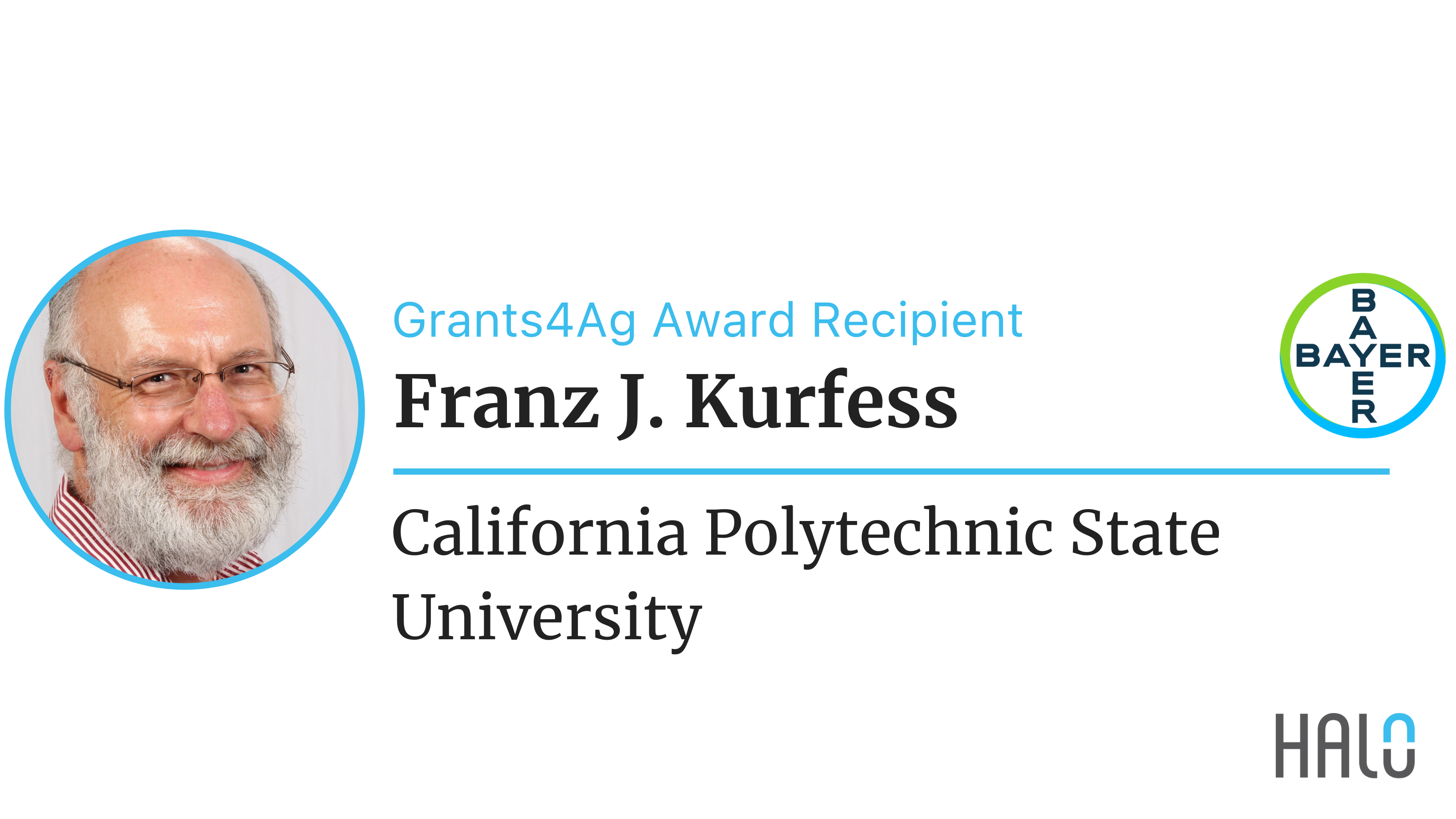Modern agriculture’s use of data sets and algorithms has the potential for positive change but sometimes raises questions of ethics. Prof. Franz Kurfess and his group are creating an ethics and social justice assessment for research activities through a data science perspective. View Halo Profile >>
Tell us about your research.
Within the context of a data science initiative at our university, a group of researchers from different areas has engaged in an effort to create a framework for the assessment of research activities regarding ethics and social justice.
Our goal is to provide educational and practical resources to increase the awareness of ethical and social justice aspects in research activities.
Can you explain that to a non-scientist?
Many research activities involving computers these days involve the use and creation of large datasets. As exemplified by the recent use of facial recognition, these datasets may have inherent issues like bias, missing or incorrect values, and unintended use. Our goal is to provide educational and practical resources to increase the awareness of ethical and social justice aspects in research activities.
Why did you choose this area of research?
Working in artificial intelligence for some time, I’ve regularly encountered situations where algorithms, data sets, and usage scenarios touched upon ethical issues. Collaborating with others in our data science initiative led to a mutual reinforcement of interest and the development of an educational and practical set of resources to support the consideration of ethical aspects in research activities.
We hope to create an ethical and social justice assessment rubric for research activities that can be used by other Grants4Ag recipients to examine and reflect upon their own projects.
How could your Grants4Ag project someday impact #healthforall #hungerfornone?
We hope to create an ethical and social justice assessment rubric for research activities that can be used by other Grants4Ag recipients to examine and reflect upon their own projects. We are also planning to expand its use within our university and beyond, with participants from agriculture, health, nutrition, and other disciplines.


